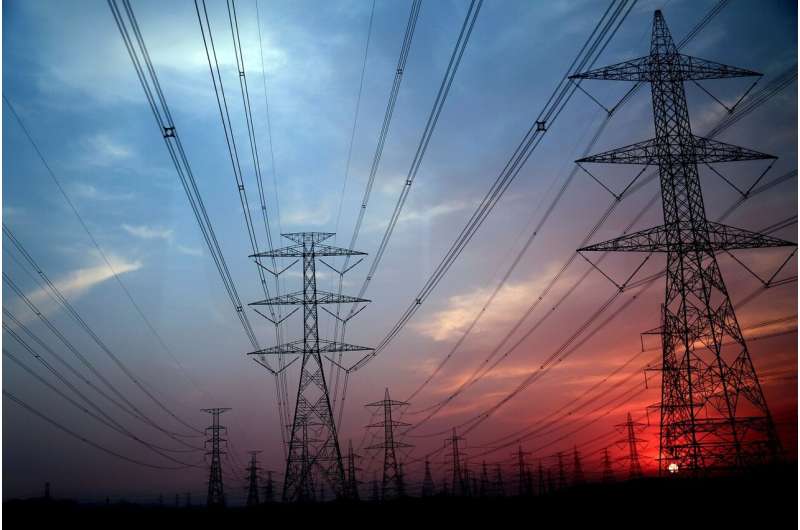
September 30, 2024 by Stanford University
Collected at: https://techxplore.com/news/2024-09-emissions-energy.html
As competition between gas and electric utilities heats up due to clean energy-promoting policies that emphasize replacing gas with electricity, state regulators need to overhaul their approach to regulation, argue scholars at Stanford and the University of Notre Dame.
A new white paper led by the Climate and Energy Policy Program at the Stanford Woods Institute for the Environment lays out a case for unifying electric and gas utilities and instituting coordinated planning to make the transition to zero-carbon buildings more efficient and cost-effective. A related webinar on Oct. 2 will present the white paper’s results and feature a discussion among energy experts about efforts to address the newly competitive landscape and advance the energy transition.
“Utility regulators are facing a uniquely difficult combination of climate, safety, and equity concerns as they contemplate how to decarbonize gas networks,” said paper co-author Joshua Lappen, a postdoctoral research associate at the University of Notre Dame and fellow at the Future of Heat Institute. “By recognizing the competition taking place between gas and electricity, regulators can find new opportunities to proactively manage the building-energy transition.”
The white paper, “The Unseen Competition in the Energy Transition: Acknowledging and Addressing Inter-Utility Competition to Achieve Managed Decarbonization,” calls for state public utility commissions (PUCs) to formally plan around a unified energy sector. The report warns that continued competition between gas and electric utilities could delay decarbonization, saddle ratepayers with higher costs, lock in unnecessary investments in fossil fuel infrastructure, and disproportionately burden low-income energy users.
Competition or unification
While electric and gas utilities have traditionally operated in distinct markets, climate policies are increasingly pushing these sectors into competition, particularly in building heating and cooking, which have been dominated by gas utilities for decades in many areas. As technologies like electric heat pumps and induction stoves become more efficient and widespread, gas utilities have launched aggressive campaigns to protect their market share. The federal Inflation Reduction Act has further intensified this competition by offering subsidies for electric appliances, fueling what the authors describe as a “patchwork of duplicative energy monopolies.”
“In many parts of the U.S., gas and electric utilities are now providing nearly identical services, but customers are paying for the maintenance of two separate distribution systems,” the authors write. This, they argue, creates economic inefficiencies that could be avoided through better planning and coordination.
The white paper advocates for PUCs to consolidate planning processes for gas and electric utilities, treating them as components of a single energy sector. This would allow regulators to optimize investments across both systems, minimize stranded assets, and ensure that decarbonization proceeds equitably and quickly.
The authors recommend that regulators consider consolidating gas and electric utilities that serve the same territories, potentially merging them into unified energy service providers. This would not only streamline decarbonization efforts but also help maintain service safety and reliability and protect ratepayers from escalating costs.
Managing the transition
The report highlights the risks of inaction, warning that gas utilities are incentivized to continue to expand fossil fuel infrastructure with lifetimes longer than decarbonization timelines and creating financial risks for consumers.
By managing competition between gas and electric utilities through proactive regulation and planning, the researchers believe the U.S. can accelerate its transition to a decarbonized energy system while protecting both ratepayers and the economy.
“Times have changed,” said paper co-author Amanda Zerbe, an early career climate law fellow at the Stanford Law School’s Environmental and Natural Resources Law & Policy Program. “To reach our climate goals, we have to start treating gas and electric utilities as a single energy system.”
Co-authors of the paper also include Michael Wara, director of the Climate and Energy Policy Program at the Stanford Woods Institute for the Environment and Michael Mastrandrea, research director of the program. Wara and Mastrandrea are senior director for policy and director for policy, respectively, at the Stanford Doerr School of Sustainability’s Sustainability Accelerator.
More information: Joshua Lappen et al, The Unseen Competition in the Energy Transition: Acknowledging and Addressing Inter-Utility Competition to Achieve Managed Decarbonization (2024)

Leave a Reply